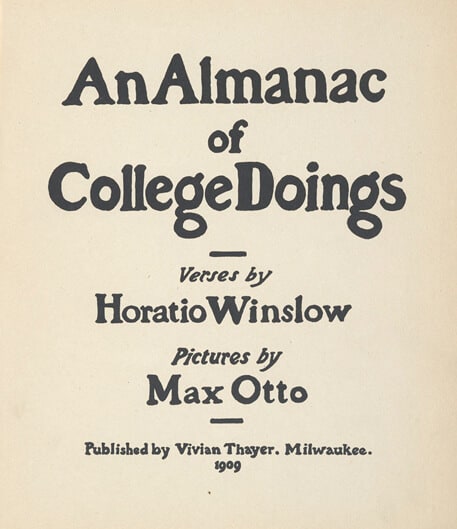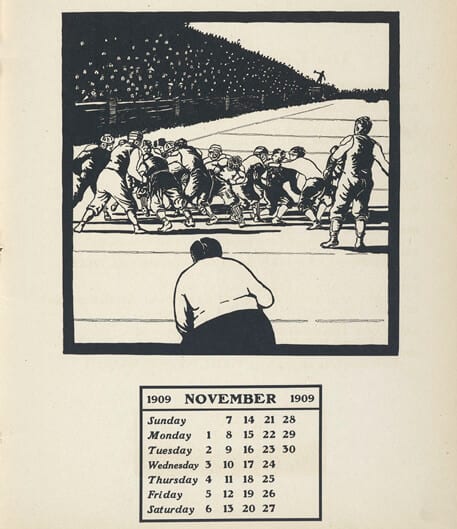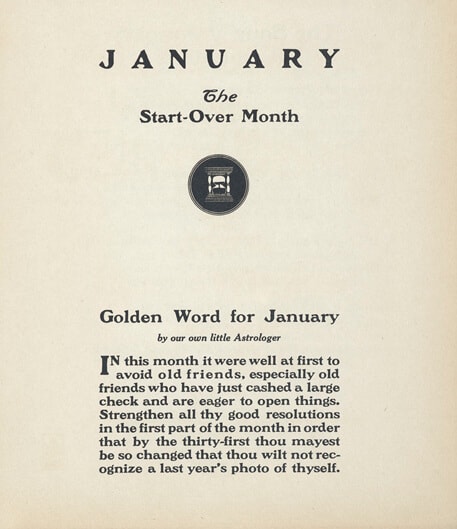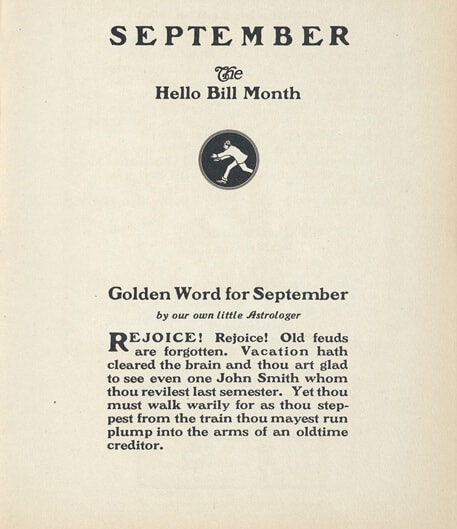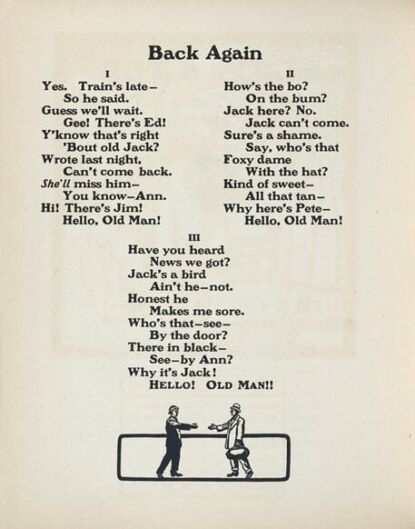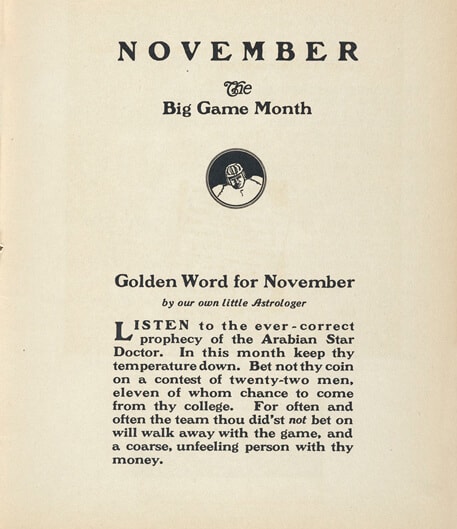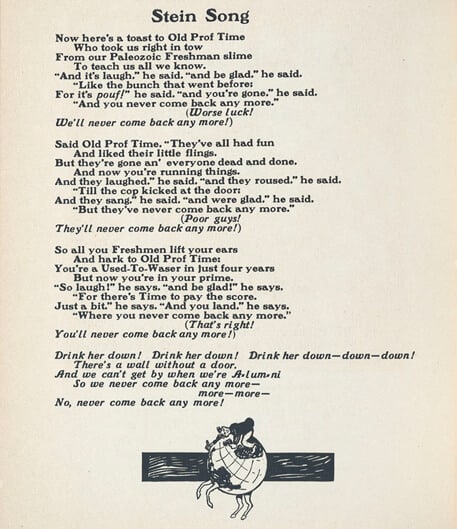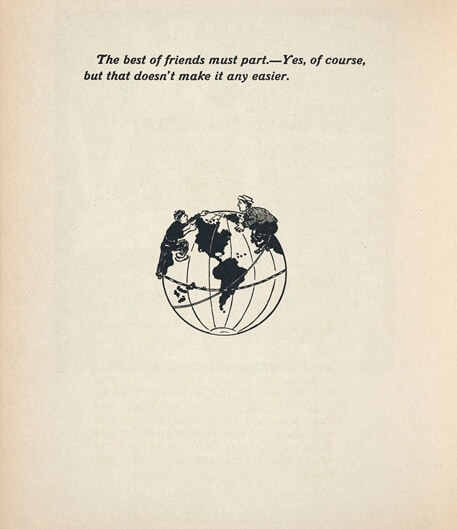Almanac of College Doings
College Life, Month by Month
“Betting is a curse from beginning to end, that’s why it improves your vocabulary.”
That amusing aphorism is one of just many in the 1909 Almanac of College Doings. The 48-page book — created by three University of Wisconsin students and seemingly a spoof on Poor Richard’s Almanack — paints a year in the life of a Badger in the early 20th century through silly sketches, humorous horoscopes, and satirical proverbs.
Even today’s students will recognize the monthly matriculation rituals in the now-yellowed pages: back-to-school, football season, studying, and summer jobs.
We Badgers have always held a sharp wit in high regard. When the Almanac was published, the university boasted two literary societies that would hold oratory debates at Music Hall, and one humor magazine, the Sphinx, a precursor to the Octopus and the Onion.
Three young men whose paths crossed on campus were responsible for the Almanac. The book names Horatio Winslow BA1904; Max Otto BA1906, MA1908, PhD1911; and Vivian Thayer BA1910, MA1917, PhD1922 as writer, illustrator, and publisher, respectively.
Winslow, who also wrote for the Wisconsin Literary Magazine and performed with the Haresfoot Club, likely met Otto working on the Sphinx. Winslow later became a regular contributor to the Saturday Evening Post and wrote a few books, including the novel Spring’s Banjo, based on his time in Madison.
The Almanac was published while Otto worked as an assistant in the history department and earned his doctorate in philosophy. Otto, who was born in Germany, had arrived in Madison in 1903 to study history under Frederick Jackson Turner BA1884.
He later became of the UW’s most popular professors and taught philosophy for more than two decades. His famous course, the controversial “Man and Nature,” examined how the theory of evolution influenced humankind’s concept of itself. When he retired in 1947, 400 people attended a celebratory dinner at the Memorial Union, including friend and former Governor Philip La Follette BA1919, LLB1922.
Otto’s dorm mate was Hesperia Literary Society member Vivian Thayer. The two shared more than a room; they held similar beliefs about philosophy. Thayer pursued a similar career track and earned his own doctorate in 1922. Thayer became known as an authority on humanism, as well as for his work in progressive education.
 85° F
85° F